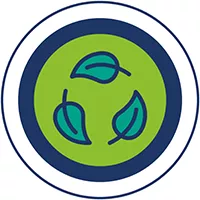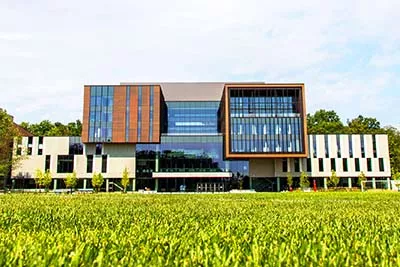
At a department meeting in November 2020, during a discussion about the future of campus research space, a faculty member evoked the Constitution of the Iroquois Nations. “Have always in view,” the Constitution advises, “not only the present but also the coming generations.” UTM embraces this vision as a basis for action. We foster a culture of sustainability and professional competence that lifts up communities in the present and cares for our environments and resources for the future.

UTM invests in teaching and research that measures, models, and mitigates climate crisis, and connects students with pathways in sustainability learning and entrepreneurship. We promote sustainability in our civic engagements, collaborating on ecological and food sovereignty projects with Credit Valley Conservation, the City of Mississauga, and Indigenous partners. And we ensure the sustainability of our physical plant and operations, developing green buildings and spaces, and finding new methods to manage our resources and business processes effectively.
This work relies on the skill of operational teams who, alongside instructors, researchers, students, and partners, promote UTM’s resilience in lots of ways. These teams design IT solutions, build world-class facilities, and care for this campus’s land. They share nutritious food sourced fairly and host campus events for social connection. And they create budget and advancement plans that secure our long-term financial strength. Together, this expertise nurtures a campus in which present and future generations can take pride—a home for responsible development, ecological flourishing, and sustainable practice.
Commitments
- Design green buildings and spaces that enhance belonging, biodiversity, and operational resilience.
- Foster sustainability across our teaching and research programs and our external engagements.
- Identify and implement evidence-based approaches to take care of our environmental, infrastructural, and financial resources.
Accountabilities
- Have we practiced the principles of UTM’s Site Plan, opening buildings and spaces that enhance our campus’s beauty and ecological health and promote community vitality and connection?
- Have we met targets set in UTM’s Sustainability Strategic Plan?
- Have we sought other opportunities and paradigms to adapt to planetary challenges, including food insecurity and climate crisis?
- Have we implemented systems—budget processes, IT infrastructure, and space and building management practices—that use resources responsibly, according to our values and priorities?
- Have we identified areas in which we can grow and what we must relinquish to grow sustainably?
